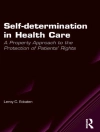Radical skepticism endorses the extreme claim that large swaths of our ordinary beliefs, such as those produced by perception or memory, are irrational. The best arguments for such skepticism are, in their essentials, as familiar as a popular science fiction movie and yet even seasoned epistemologists continue to find them strangely seductive. Moreover, although most contemporary philosophers dismiss radical skepticism, they cannot agree on how best to respond to the challenge it presents. In the tradition of the 18th century Scottish philosopher, Thomas Reid, Radical Skepticism and Epistemic Intuition joins this discussion by taking up four main tasks. First, it identifies the strongest arguments for radical skepticism, namely, underdetermination arguments, which emphasize the gap between our evidence and our ordinary beliefs based on that evidence. Second, it rejects all inferential or argument-based responses to radical skepticism, which aim to lay out good noncircular reasoning from the evidence on which we base our ordinary beliefs to the conclusion that those beliefs are probably true. Third, it develops a commonsense noninferential response to radical skepticism with two distinctive features: (a) it consciously and extensively relies on epistemic intuitions, which are seemings about epistemic goods, such as knowledge and rationality, and (b) it can be endorsed without difficulty by both internalists and externalists in epistemology. Fourth, and finally, it defends this commonsense epistemic-intuition-based response to radical skepticism against a variety of objections, including those connected with underdetermination worries, epistemic circularity, disagreement problems, experimental philosophy, and concerns about whether it engages skepticism in a sufficiently serious way.
Michael Bergmann
Radical Skepticism and Epistemic Intuition [PDF ebook]
Radical Skepticism and Epistemic Intuition [PDF ebook]
Köp den här e-boken och få 1 till GRATIS!
Språk Engelska ● Formatera PDF ● Sidor 336 ● ISBN 9780192653567 ● Utgivare OUP Oxford ● Publicerad 2021 ● Nedladdningsbara 3 gånger ● Valuta EUR ● ID 7879406 ● Kopieringsskydd Adobe DRM
Kräver en DRM-kapabel e-läsare












